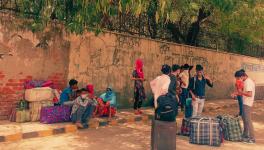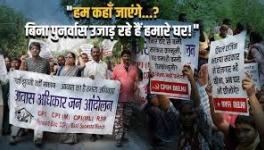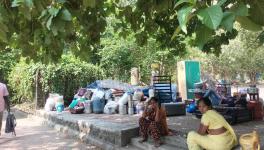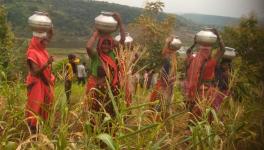Mumbai: Over 200 Families in Ambujwadi Left Homeless Amid Peak Monsoon
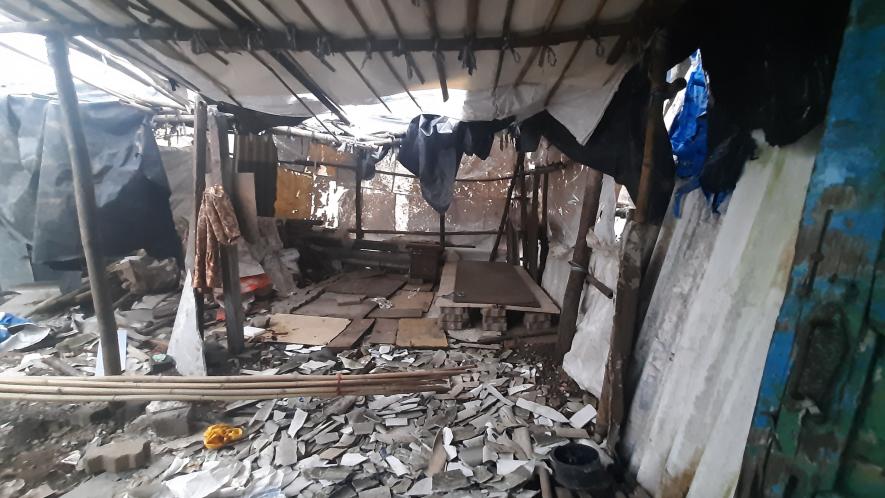
These are the conditions in which the people of Ambujwadi live after their houses were razed.
Mumbai: In the west of Mumbai, beyond the City of Dream's eye-catching areas, into the suburbs lies Ambujwadi in Malad, where on July 19 2023, bulldozers razed hundreds of houses where the urban poor resided. This was not the first time the area witnessed such demolition; there were intimations earlier as well when the bulldozers came into the area on July 1 and July 6. And on the former two dates, the residents were not troubled much. The officials allegedly said that the area for the road had to be extended, and some part of the unauthorised colony would fall under the area to be used for the roads.
On August 3 and August 4, the residents went to Azad Maidan to protest against the demolitions. They spent two days protesting against the government, particularly the Housing Minister. The first meeting with the officials regarding the houses happened on July 11, where conversations with the Deputy Collector of Encroachment and Deputy Collector of Goregaon Mandal remained inconclusive. However, the officials have lately assured the residents that there will be no further evictions until the monsoon ends.
The land is a Collector's Land, hence a government property, making the colony of Ambujwadi unauthorised. The breadwinners of the area here are either auto-rickshaw drivers or domestic help when it comes to women. The others do menial jobs and are daily wage earners. 67-year-old Rehman sat in the corner, staring at the people moving around in the lanes of the colony during the evening. This is how he spends most of his time these days. He used to run a small shop, remnants of which lay right behind him, all ruined.
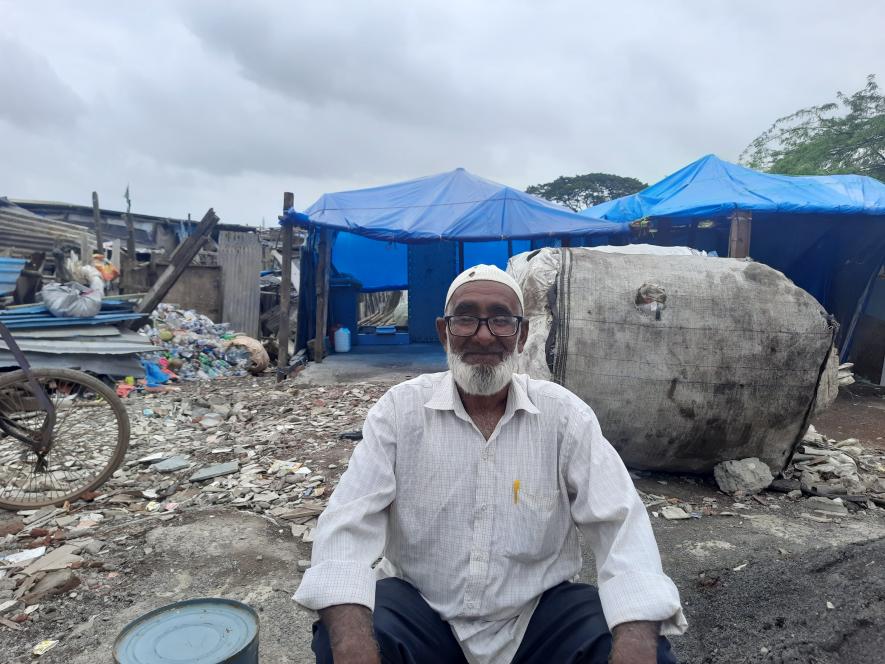
Rehman sitting outside the area where a few days back his house was. Now he stares at the happenings on the road wondering about his family's future.
"I have been in Mumbai for the past 40 years now. I never thought that such a situation would occur. When they came for the first time, they said they were just extending the road. I willingly agreed and thought until we had some space beyond our house, it should not be a problem. But on the first two dates that they came, they did not even give any notice. We did not even know if our houses were in danger," narrated Rehman. He has a family of nine, and what worries him today is that all the leftover savings he had and the documents that could have been of some help to him in case there was a scope for justice were lost now.
Standing in a faraway corner, looking at everything happening, was a middle-aged woman, Anju, whose only shelter now was broken pieces of asbestos on the sides and a plastic roof. She looked pale, and it seemed she had not had proper meals for days.
On enquiring, NewsClick found that her husband was a rickshaw driver. She had been suffering from Malaria for the past two days and was having difficulty recovering since her house was in an extremely unhygienic spot. Her family had to shift to Ambujwadi during COVID when they were revoked from their last place. Since there was not much affordable facility to get back home, the family decided to come to Ambujwadi to somehow sustain themselves there. Many families besides Anju's had a similar tale to narrate.
The problem with the evictions was not about legality as much as the residents described the conditions in which they were chased out of their houses. It was around 2:30 pm on the afternoon of August 19 when the demolitions took place. It was raining heavily in Mumbai that day, and everyone who lost all they had faced the additional problem of being wet due to the rains and having no escape. There has been no electricity in the area for the past month either. People rely on candles and flashlights on their phones during the night.
The lanes within the colony do not exist anymore. There are just extremely narrow pathways meant for one person to walk at a time. Since it is the time of monsoons, the residents often tackle snakes and insects that could harm their kids. Many have built a wooden platform where they keep the kids while it rains as the water comes inside their houses and makes it difficult to sleep at night. The only solidarity amid this is that they have been meeting regularly in a small office outside the colony, where they sit and discuss how to proceed with their matter. Men and women of Ambujwadi have learnt to fight and have been trying to figure out how to keep their houses, where most of them have been living for over 15 years.
What once used to be a lane has now shrunken into a lane this narrow where only one person at a time can walk.
The women of the houses deal with additional problems during the day. There are no washrooms left in the area, and neither is there a bolt on their doors. To take a bath, many have to use the same area where they sleep at night. There is only one public washroom used by hundreds of people daily.
Noor Jahan is 30 and has five kids. While the houses were being bulldozed, two of her kids were still inside the house, one of them only a year and a half old, helpless and not understanding what was happening. After begging the officials for a while, they finally listened and rescued her kids.
"There have been attempts of stealing in my house as well. The local thieves come at night and have tried to enter my house twice. My husband and I have to spend sleepless nights to protect our family and our remaining belongings."
Shubham Kothari, a member of the JHSS (Jan Haq Sangharsh Samiti), has been actively resisting the demolitions across the city and has been an active part of matters related to housing. He spoke with NewsClick about the legality of these houses.
"There is a procedure to establish the illegality of any structure in the Slum Act of Maharastra 1971 and two government resolutions dated May 16, 2015, and 2018 issued by the government of Maharashtra's urban dept state that procedure to declare a structure illegal, there has to be a survey first, and based on the documents these residents have and the cut-off dates of 2011, it has to be decided whether they are legal or illegal."
Furthermore, he talked about how these demolitions took place during peak monsoon, and the question lay on the government whether their move was legal or not.
Get the latest reports & analysis with people's perspective on Protests, movements & deep analytical videos, discussions of the current affairs in your Telegram app. Subscribe to NewsClick's Telegram channel & get Real-Time updates on stories, as they get published on our website.










